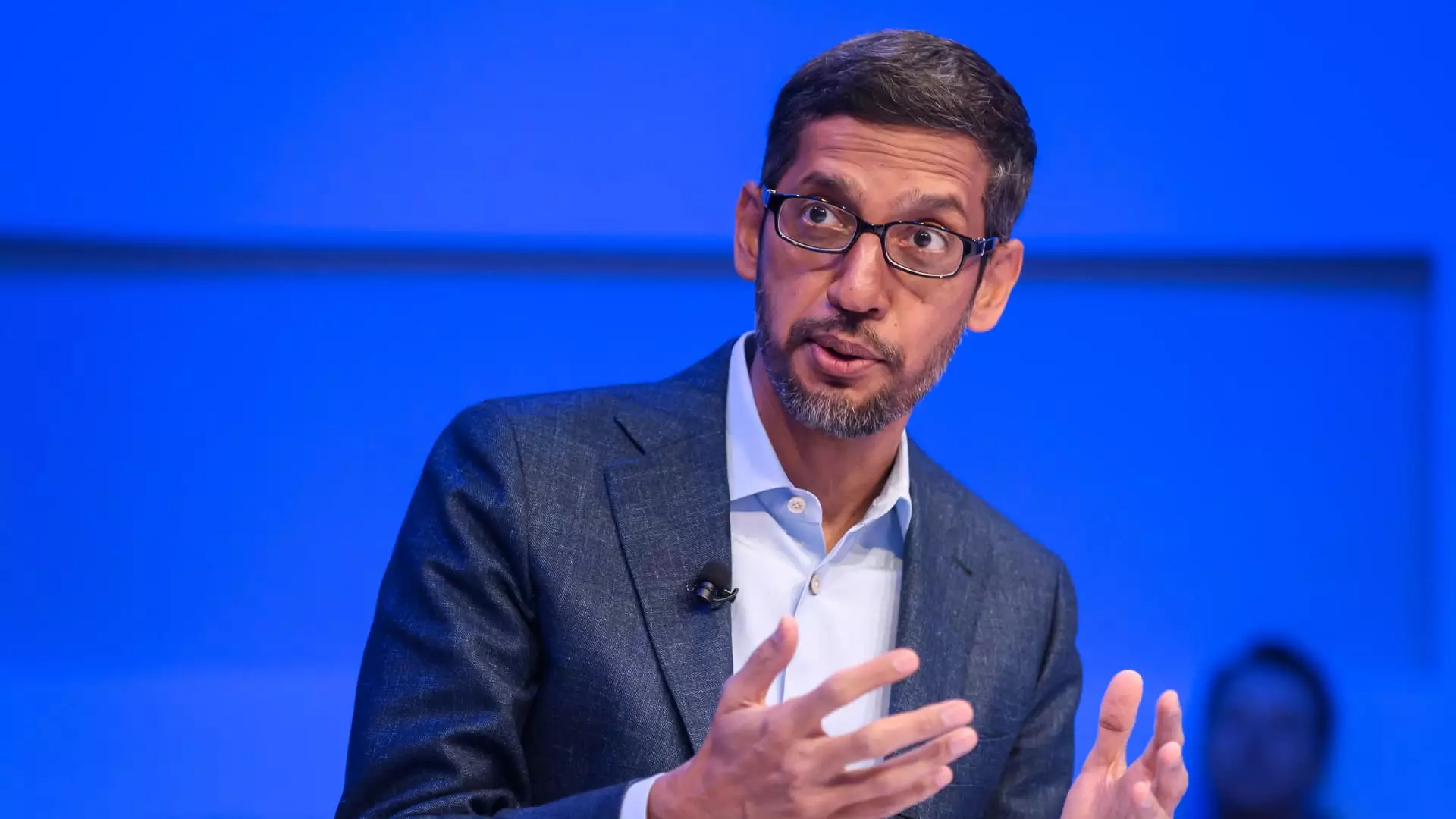In a recent meeting with employees, Google CEO Sundar Pichai delivered a stark message: the upcoming year 2025 holds unprecedented significance for the tech giant. With fierce competition mounting, regulatory scrutiny intensifying, and the rapid acceleration of artificial intelligence (AI) technologies, Pichai emphasized the necessity for swift action to harness new advancements. In a light-hearted atmosphere marked by holiday sweaters at Google’s Mountain View headquarters, the gravity of the situation was palpable. “I think 2025 will be critical,” Pichai asserted, urging the company to internalize the urgency of their challenges, underscoring that “the stakes are high” as they advance towards this tumultuous juncture.
As Google navigates a landscape rife with disruption, employees are encouraged to pivot their focus toward identifying tangible benefits of AI and addressing real customer needs. The tech realm’s dynamic nature demands not only speed but also an integrated strategy aimed at leveraging cutting-edge technologies for practical applications. This clarion call for urgency reflects both the pressure the company is under and the innovative potentials that await exploration.
The stakes for Google are not merely defined by competitive pressures; regulatory scrutiny is an equally pressing concern. Following a tumultuous year of legal challenges and government investigations, Pichai’s comments highlight an era marked by heightened oversight regarding Google’s market influence. In light of a federal judge’s ruling on Google’s monopoly within the search market and the Justice Department’s calls for divestitures—such as the proposed divestment of its Chrome unit—Google is enthusiastically aware that oversight is part of the landscape they must maneuver.
Britain’s competition watchdog’s objections against Google’s advertising technology practices further compound these challenges. The size and success of Google have attracted global scrutiny, requiring the company to deftly navigate this labyrinth of regulations without losing focus on its core mission of innovation. Pichai remarked on the inevitability of scrutiny correlating to the company’s vast scale, imploring his team to stay laser-focused amidst the noise of external challenges.
As the tech realm experiences a seismic shift due to advancements in generative AI, Google finds itself facing new competitors who are transforming traditional paradigms of information accessibility. Following the rise of tools like OpenAI’s ChatGPT and Microsoft’s subsequent investment in AI technologies, Google’s position as a search leader is facing unprecedented challenges. The advances initiated by rivals have catalyzed significant changes in user behavior, reshaping expectations in the digital realm.
To maintain its leadership position, Google is pivoting toward significant investments in AI, particularly through its emerging model, Gemini. Pichai indicated that scaling Gemini into a widely utilized app is a primary focus for 2025, anticipating a competitive landscape where Google must establish its product as the benchmark for excellence. His acknowledgement of the necessity to “execute well” reiterates that speed and innovation alone will not suffice; an unwavering commitment to best-in-class product offerings is essential.
Insights gained from Google’s strategy meeting reveal a forward-thinking vision for AI integration across various platforms and services. DeepMind co-founder Demis Hassabis outlined a vision for creating a universal AI assistant capable of seamlessly functioning across multiple domains and devices. This ambitious direction represents not just a product evolution but a paradigm shift in how users interact with technology.
The introduction of projects like Astra illustrates Google’s aim to develop solutions that transcend traditional boundaries. Such innovation is essential as the company endeavors to keep pace with both existing and upcoming competition. As user expectations evolve, so must Google’s offerings, showcasing a readiness to pivot and adapt accordingly.
Through a theme of resilience and scrappiness, Pichai reiterated the importance of fostering creativity within the confines of business constraints. With a workforce reduction of 6% in 2023 and ongoing emphasis on operational efficiency, Google is in the midst of a significant recalibration. Referencing the scrappy ethos of Google’s founders, Pichai encouraged employees to view constraints as an opportunity for innovative problem-solving.
As the company strives to redefine its operational frameworks and infuse its offerings with agile creativity, the need for cohesive teamwork and collective ambition becomes vital. When faced with challenges, the spirit of creativity and adaptability must guide the company’s trajectory, driving it toward renewed success.
With many moving parts shaping Google’s future landscape, the coming year is poised to be a defining moment. As the company grapples with fierce competition, regulatory challenges, and technological advancements, the strategic imperative laid out by Pichai highlights an urgent need for focused and innovative execution. Embracing the risks and opportunities of 2025 will require not just operational adeptness but also a cultural commitment to creativity and collaboration. Whether Google can successfully navigate these turbulent waters will be unveiled in the innovative solutions that emerge in the coming year.

